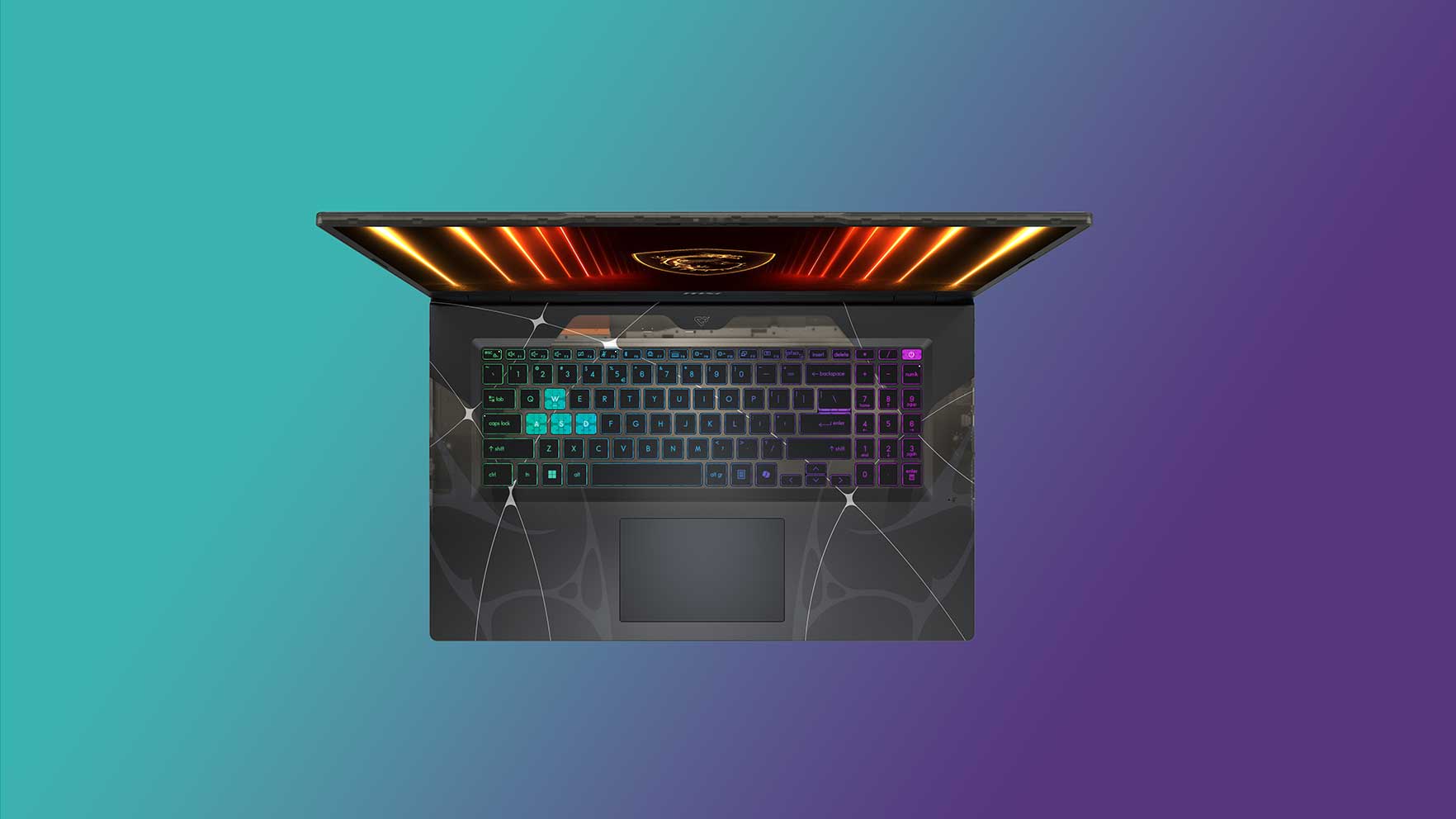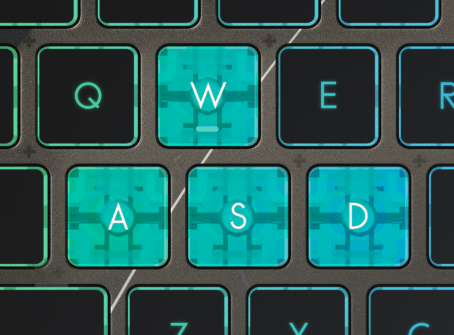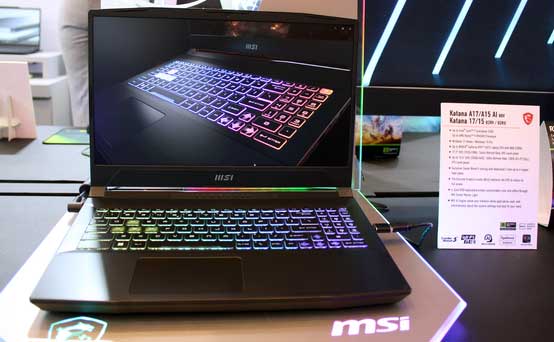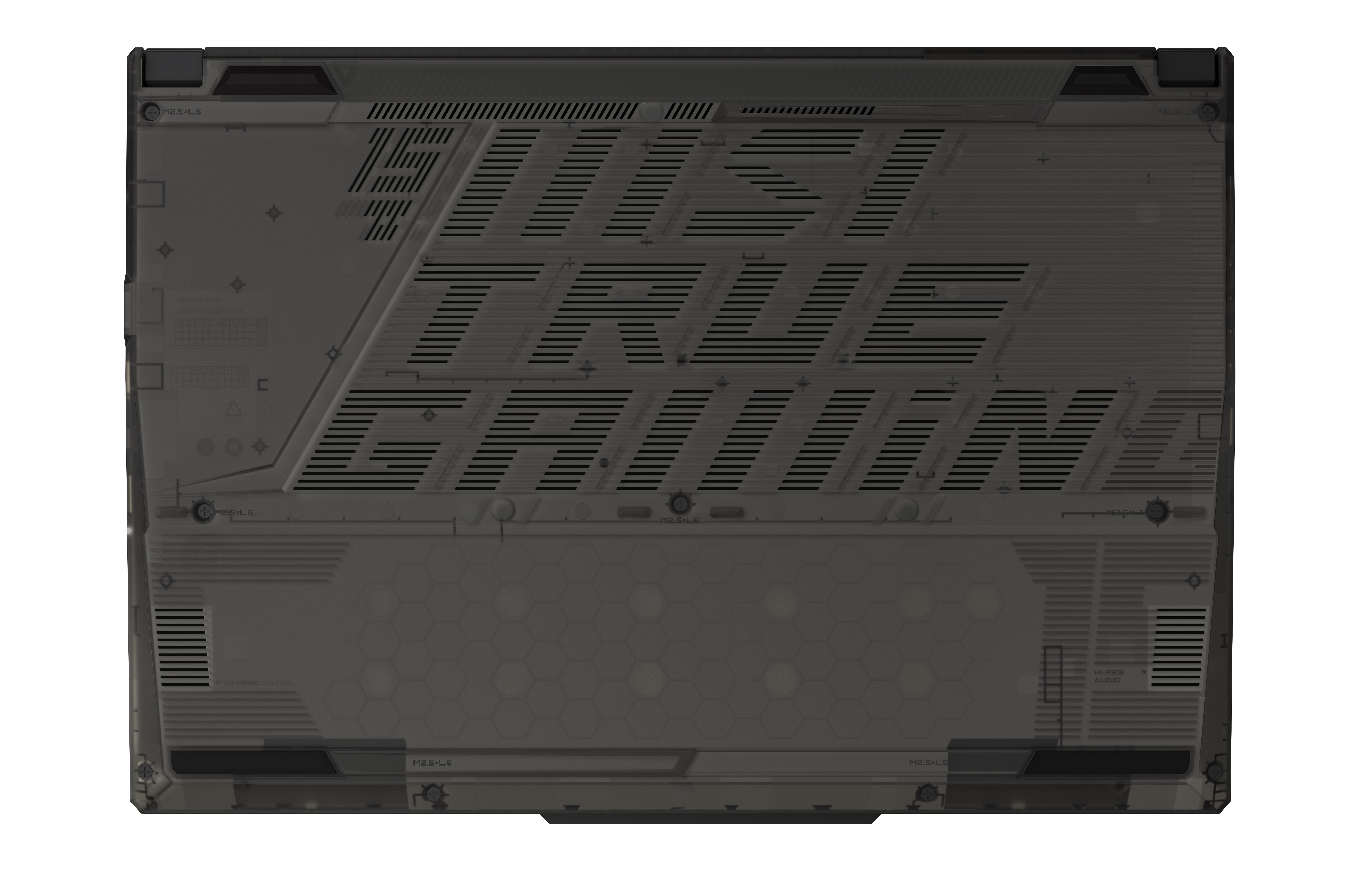These MSI budget laptops might make you say, "I love the '90s"
MSI’s Cyborg looks much more unique and refined than some of its other budget — even mid-range — gaming laptops.

When it comes to nostalgia-fueled trends, ‘90s tech doesn’t make me feel as aware of my mortality as a pair of parachute pants might. It’s a pleasant reminder of all the cool see-through gadgets I had as a kid, like my N64 controller or Monkey Giga Pet. It’s also a reminder of how far laptop designs have come in the last 20-plus years, particularly budget gaming laptops.
Us ‘90s kids are all grown up with our own budgets and ready to spend it on a souped-up gaming laptop. In addition to that, a new generation is understandably fascinated with tech before their time, so there’s no reason for budget gaming laptops to look as dull and ugly as they used to.
MSI seems to understand the nostalgia that connects two generations of tech-natives with its Cyborg line of budget gaming laptops. It first announced a refreshed, 14-inch Cyborg at CES 2024, which had translucent panels around its ports and underside. The year before, it was a 15-inch Cyborg. The best part is the price for each — they are among the lowest in the entire MSI gaming laptop catalog. Today, these laptops are still some of the best-looking, cheapest ones you can find — most recently at $900 or less over the holidays. (B&H Photo still has it on sale for $829!)
This article is part of a Laptop Mag special issue highlighting news, reviews, interviews, and analysis of the best in consumer tech showcased at CES 2025, direct from Las Vegas, Nevada. For more coverage, check out Laptop Mag's CES 2025 special issue.


MSI added a 17-inch Cyborg to its lineup this year, featuring a different translucent see-through panel above the keyboard that also runs along the sides of the deck and continues under nearly all the keys.

An MSI rep tells Laptop Mag these very ‘90s design choices were made to help the 14”, 15”, and 17” Cyborg laptops stand out. The W, A, S, and D keys are also translucent, a trend that first caught on with higher-end gaming laptops and has made its way to the Cyborg line.
All three of MSI’s Cyborg models come with reasonable specs: a 13th-gen Intel Core i7, up to 32GB of RAM, up to 1TB of storage, and a 1200p 144Hz IPS display. There’s no word on a release date or price for the 17-inch model, but I expect it will be over $1,000, given the prices of the smaller models.
MSI’s Cyborg looks much more unique and refined than some of its other budget — even mid-range — gaming laptops.
I’m also glad black gaming laptops with rounded corners that were somehow still sharp have largely disappeared. (If only parachute pants would fade back into the 90s where they belong.) MSI’s Cyborg looks much more unique and refined than some of its other budget — even mid-range — gaming laptops. Take the MSI Katana: when I recently saw it on display at CES, it still had an overly chunky, matte chassis that was obviously made of plastic. There’s nothing inherently wrong with a plastic chassis, but it has to have the refined shape of a more expensive machine to feel not so, well, budget-y.
Get The Snapshot, our free newsletter on the future of computing
Sign up to receive The Snapshot, a free special dispatch from Laptop Mag, in your inbox.

The Katana’s keyboard was still slightly depressed into the chassis, and the trackpad still looked small and out of proportion to the laptop's overall size. In contrast, MSI’s Cyborg looks more expensive than it is. The keyboard is flush with the top of the bottom chassis. The outer edges form clean, straight lines instead of tapering off at various points to make it look more aggressive. Instead of making the Katana’s top bezel thicker to avoid a webcam notch, MSI gave the Cyborg a notch and made the rest thinner.

With these differences between its budget and mid-range laptops, I can’t help but feel like MSI flipped the script on what we’ve come to expect design-wise from gaming laptops. Some of that could be due to recent advancements in hardware architecture. Still, I hope MSI continues this trend — you better believe I’ll one day give into my childhood nostalgia and buy a budget gaming laptop with translucent panels.

Joanna Nelius is a contributing writer to Laptop Mag. She has reported on and reviewed laptops for The Verge, Gizmodo, PC Gamer, and USA Today.

